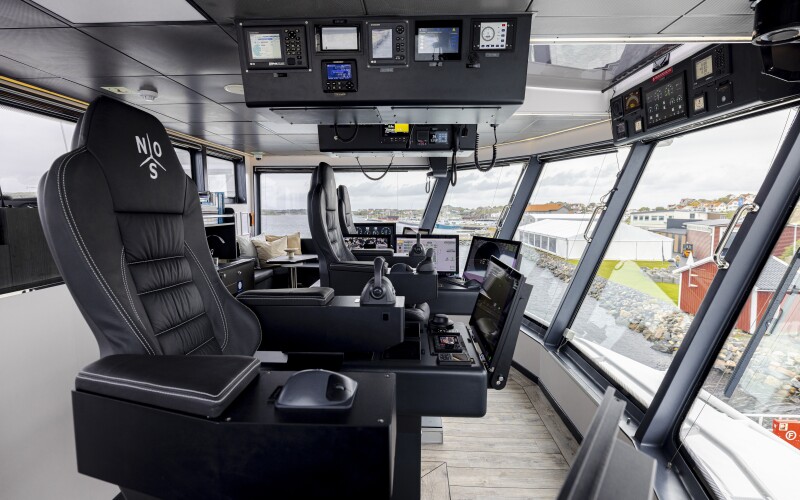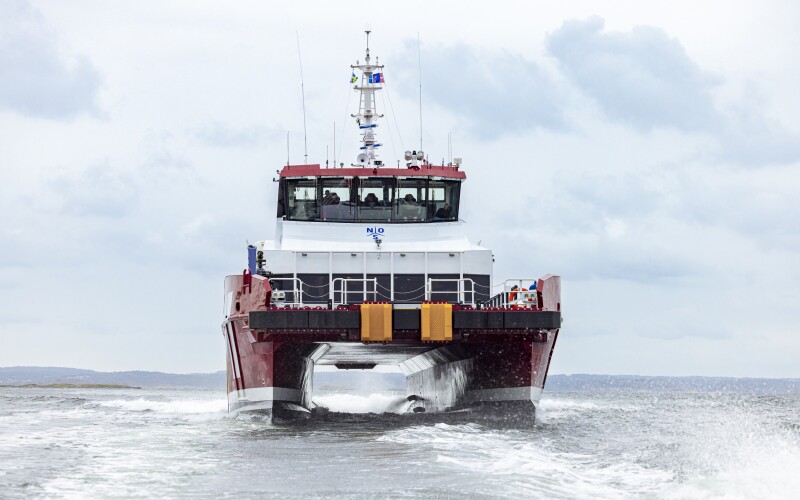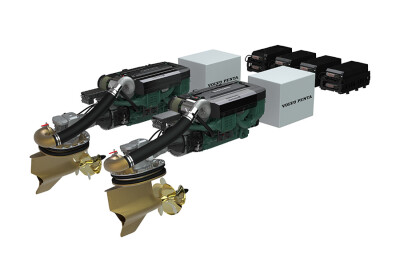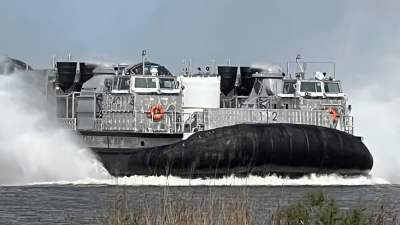In a joint press release, the two companies highlighted their collaborative aim of reducing the marine industry's carbon footprint and achieving zero emissions by 2050, stating this deployment was a significant step forward toward that goal. N-O-S emphasized that the I-Class vessel is designed with future flexibility in mind, capable of adapting to new technologies and energy solutions throughout its operational life, which is expected to exceed 25 years.
Volvo Penta noted its IPS Professional Platform enhances the vessel's efficiency, maneuverability, and versatility, enabling it to undergo propulsion conversions that support hybrid, fully electric, and alternative fuel systems without requiring extensive rebuilding. The vessel’s quad Volvo Penta D13 engines, each producing 790 hp at 2250 rpm, can be substituted for hybrid or electric motors when the technology becomes readily available. Additionally, the vessel has twin Volvo Penta D4 auxiliary engines, each producing 150 hp.
M/V Impresser currently has two ZEM 94 kW batteries onboard, with room for twenty-four 94 kW batteries for a total of 2256 kWh. A Volvo Penta representative noted if this vessel were to adopt fully electric engines, it would require the ability to recharge once at the windfarm.
The 111.5’x36.7’x6.2’ aluminum catamaran is also equipped with a remote diagnostics package, which will capture over 6,000 hours of operational data to inform future propulsion designs and optimizations by Volvo Penta. The vessel has an N-O-S patented high grip fender, a Furuno full ECDIS FMD-3200 BB chart system, and a Reygar monitoring system.

Johan Inden, president of Volvo Penta Marine, highlighted the innovation-driven partnership between the two companies, emphasizing that N-O-S's extensive experience in building vessels for demanding environments spurred Volvo Penta to advance its propulsion systems. “Northern Offshore Services and Volvo Penta share an innovative spirit that drives us both. Today that resulted in the first vessel powered by Volvo Penta’s IPS Professional Platform entering real-world commercial operations,” Inden said. “N-O-S’ deep experience in building vessels for some of the most demanding environments challenged us to develop new ways to improve our propulsion systems and adapt to emerging technologies. Together, we are showing the industry what the incredible maneuverability, ease of use and precision of the Volvo Penta IPS Professional Platform can accomplish in combination with the expertise of a partner like N-O-S.”
David Kristensson, Group CEO and owner of Northern Offshore Group, pointed out the rapid growth of the offshore wind industry over the past 15 years and the increasing challenges it presents. He noted that the I-Class vessel is designed to meet the demands of tomorrow, with a focus on enhancing the safety and efficiency of offshore wind operations.
The I-Class vessel's design includes several key features, including dual power on demand with ‘Eco mode’. The vessel uses four engines connected to two drives, optimizing power based on real-time operational needs, the dual statement noted. The ‘Eco Mode’ feature automatically manages engine use, potentially reducing fuel consumption and extending engine life. Volvo Penta noted their IPS Professional Platform's twin forward-facing counter-rotating propellers provide enhanced thrust and precise control, making the vessel ideal for the challenging conditions of offshore wind farms.
N-O-S states crew comfort was a priority in designing the vessel, with high-quality interior outfitting, while the vessel's engines are capable of running on Hydrotreated Vegetable Oil (HVO). N-O-S states this HVO offers up to 30% fuel savings and up to 90% emission reductions. The I-Class vessel's helm-to-propeller system is fully integrated, with controls, electronics, software, and propulsion working together to facilitate operation and maintenance.
N-O-S' U.S. affiliate is American Offshore Services (A-O-S), a joint venture formed in 2020 by N-O-S and U.S.-based investment firm OIC. This year, A-O-S has had two of four G-Class CTVs delivered, the Gripper and the Generator. The final two vessels are under construction at Blount Boats, Warren, R.I. and Metal Shark Boats, Franklin, La.





